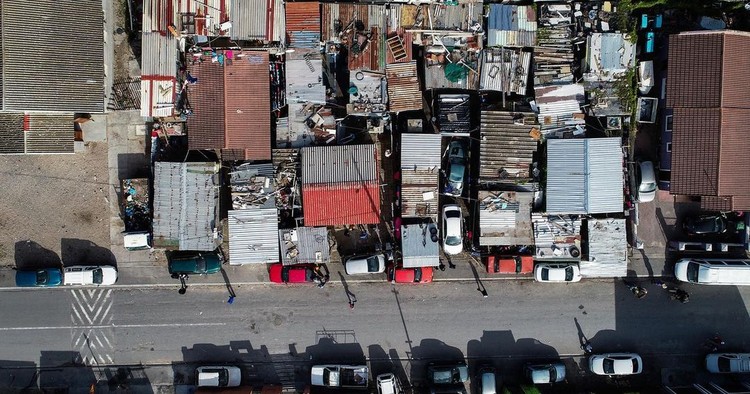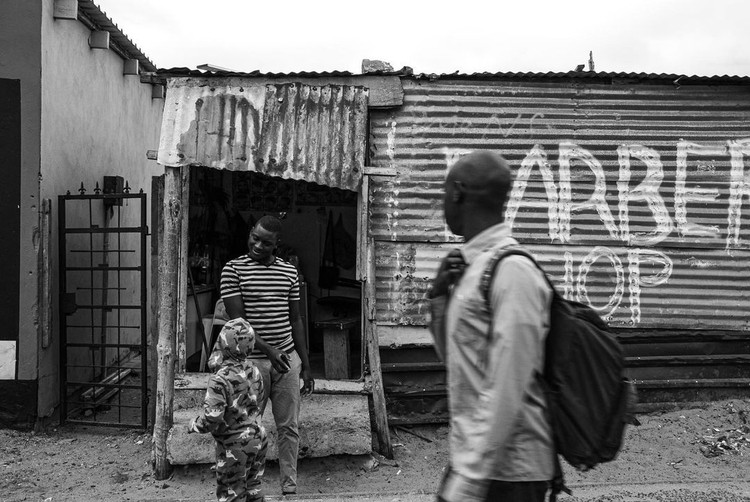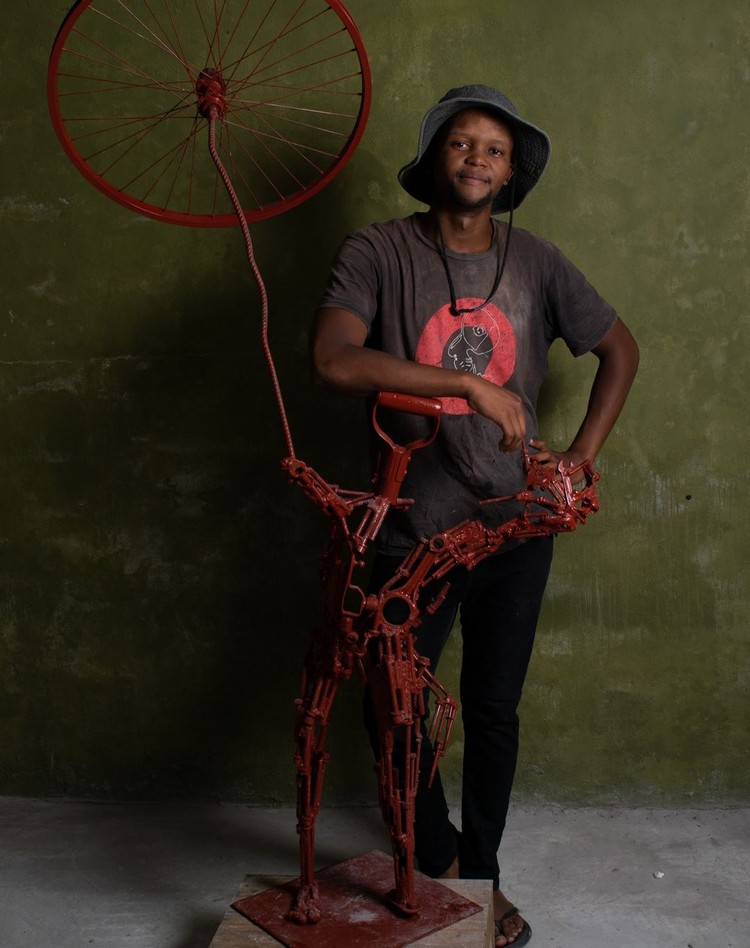Learners launch storytelling project to “recapture the beauty” of Masiphumelele
Masiphumelele: Through The Struggles We Rise is a project by nine high school girls and students from the Stellenbosch Academy of Photography and Design
An aerial shot taken for Masiphumelele: Through The Struggles We Rise project in which learners write positive stories about the community. Photo: Wesley Wrigley the_masi_story Instagram account
- Masiphumelele township is often in the news for incidents of crime and poverty, but a storytelling project wants to change this narrative.
- In partnership with Stellenbosch Academy of Photography and Design and Ikamva Youth, nine high school learners have written positive stories about their daily lives in Masiphumelele.
- They hope to publish a book with the stories and photographs.
Resilient and with a wealth of languages and cultures is how a group of young writers want the township of Masiphumelele, Cape Town, to be depicted through their storytelling.
The Masiphumelele: Through The Struggles We Rise project started in 2022 through a partnership between nine grade 10 and 11 learners from Masiphumelele, the Stellenbosch Academy of Photography and Design, and Ikamva Youth, a high school tutoring programme.
The project is the brainchild of Zintle Magazi, who grew up in Masiphumelele. She said they wish to “retell the story of Maisphumelele in a way that captures the beauty and resilience of the community, a move away from the stereotypical depiction of the township that largely focuses on poverty and suffering”.
Magazi said talks began in 2021 and the bulk of the project was completed between January and October 2022.
The project consists of photography by Stellenbosch students and written stories by nine female high school learners who write about their own experiences and the daily lives of the people of Masiphumelele.
Lungile Simakade, Masiphumelele branch manager at Ikamva Youth, said the storytelling project was also in response to the results of the Reading Literacy Study which showed that 80% of grade 4 learners cannot read for meaning.
“There was a huge call for us within the after-school space and catch-up programme to try and be innovative about different ways to close the gaps within reading and writing for learners,” said Simakade.
Masiphumelele resident Finiyas standing in front of his barbershop. His business is shaving hair and sewing clothes that need repair. Photo: Chelsea Mahlangu/ the_masi_story Instagram account published with permission
Garyth Bevan, photography lecturer at the Stellenbosch Academy of Photography and Design, explained that each student was paired with a Masi learner and did a walkabout through Masiphumelele.
“The Masi learners directed the Stellenbosch Academy students on what was important to be photographed, according to a variety of themes. These students photographed businesses and community mentors, from shop owners and a football coach to artists and enthusiastic skateboarders,” said Bevan.
During the project launch, the young writers read some of their essays and short stories in Xhosa and English to the audience.
Lilitha Mejeni, a grade 11 learner at Masiphumelele High School, said, “We first had that mentality that because we’re from the township, we’re black and we’re young, we can’t do it [the project]. But what motivates us is that we want to inspire people to say ‘there’s a black girl who looks like me and has achieved that, so I can too’.”
In one of her stories, she wrote from the perspective of a young man from Masiphumelele who needed to become the breadwinner for his family, she tells GroundUp.
Mejeni wrote, “Though we are deep in the pool of poverty, we never go to bed hungry.
“I was born poor, but my mind was not poor. I am down to earth and I was always motivated by the older guys from eKasi who have made it, like Siya Kolisi, the rugby superstar. I admire this guy. I always read books about him and how he grew up. I guess his childhood is almost like mine.”
Lindokuhle Manana, a grade 11 learner at Simon’s Town School, said, “I’d like people to know that Masi is a great place. We have so many people who are successful today because of the situations they grew up in. Even though Masi has criminals, we are great people, and we would like people to support us.”
In one of her pieces about businesses in Masiphumelele, Zethu Sobetwa, a matriculant at Masiphumelele High School, wrote that Masiphumelele is “full of business opportunities”, ranging from cosmetic stores and barber shops to spaza shops “for people wanting to put food on the table for their families,” she said.
Magazi said they hope to publish a book with the stories written by the learners. They have launched a BackABuddy page to raise funds to cover the printing costs. “The hope is to print about 40 books and distribute them in the community.”
Chumisa Fihla, sculptor and painter born and raised in Masiphumelele, at his art studio in his family home. His sculptures are built from scrap metals and shaped to embody the bodies and tools used by everyday construction workers. Photo: Robyn Gartsman/ the_masi_story Instagram account published with permission.
© 2023 GroundUp. This article is licensed under a Creative Commons Attribution-NoDerivatives 4.0 International License.
You may republish this article, so long as you credit the authors and GroundUp, and do not change the text. Please include a link back to the original article.
We put an invisible pixel in the article so that we can count traffic to republishers. All analytics tools are solely on our servers. We do not give our logs to any third party. Logs are deleted after two weeks. We do not use any IP address identifying information except to count regional traffic. We are solely interested in counting hits, not tracking users. If you republish, please do not delete the invisible pixel.





